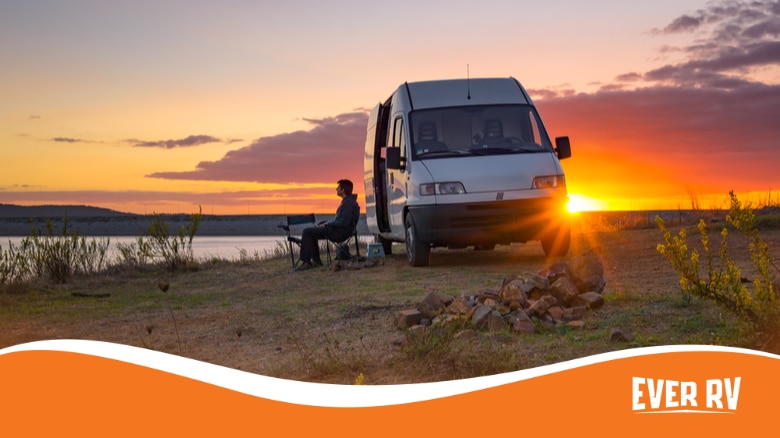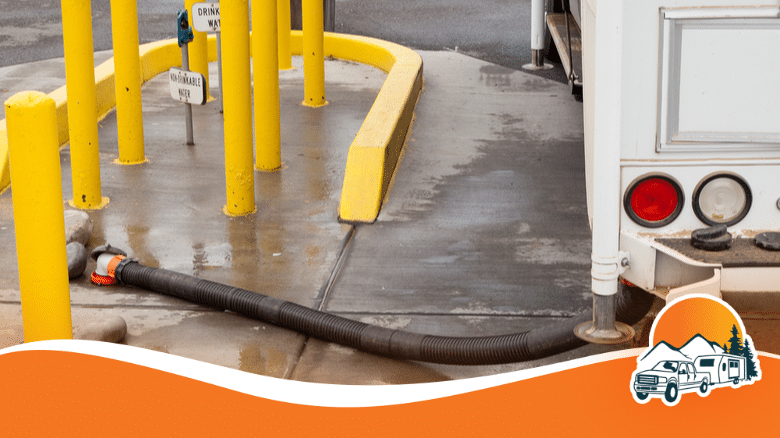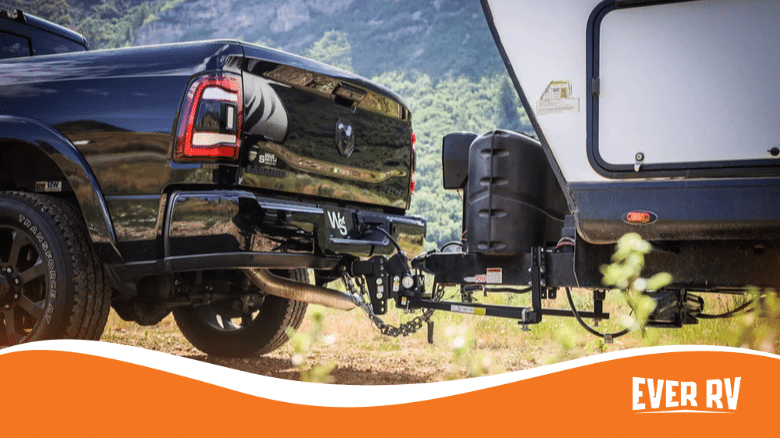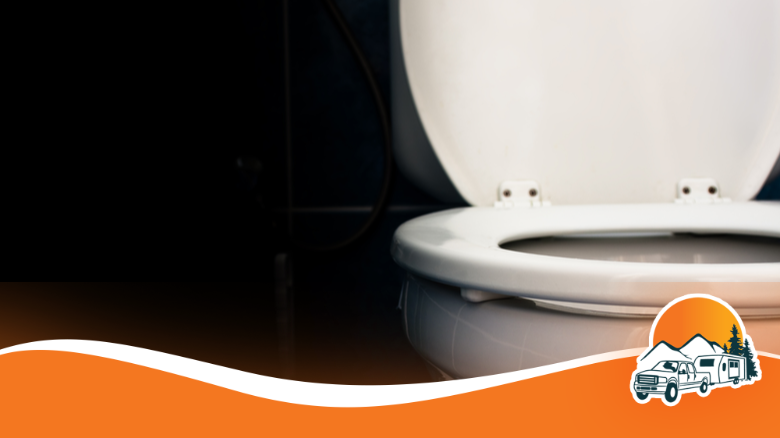Many of us want to hit the road with our RVs but don’t want to give up the comfort of the internet we find at home. Although RVing means unplugging, being connected is still crucial for multiple reasons.
Some people have work that they need to complete while traveling. Others have to communicate with their friends & family regularly. In the age of social media, people love to upload their travel photos and videos for the world to see.
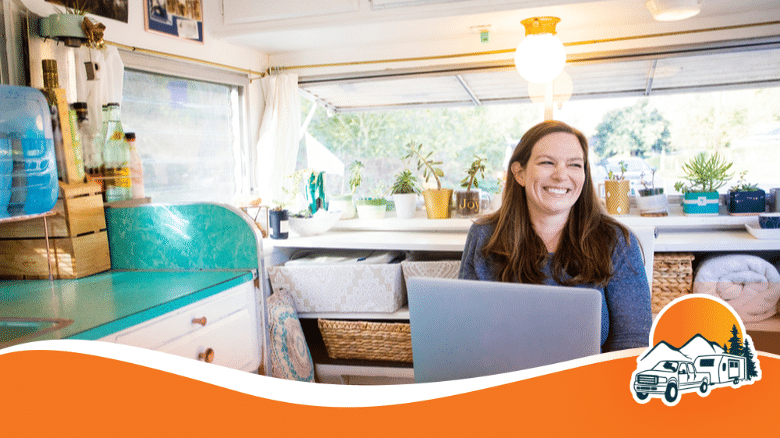
Live streaming is popular today, and you need a stable internet connection. In addition, almost all of us need to use location services to make our journey as convenient as possible, and the internet is essential for that.
If you plan to RV through your vacations and want to know everything about RV internet, this article is for you.
Different Types of RV Internet
When on the road, you have four major options for accessing the internet:
- WiFi
- Cellular
- Satellite
- Cable Internet
There is no right or wrong option here, as it depends upon the kind of situation you find yourself in. An internet option good for you might not be suitable for someone else. All of these have their benefits and drawbacks. Let’s discuss them in detail to determine which option suits you and your RV the best.

Cellular RV Internet
Cellular internet is among the most popular options, especially when no wifi or cable internet is available. Good reception means flawless internet speeds, more than enough to stream high-definition (HD) videos.
One way of using cellular internet is through a mobile hotspot. It’s an ingenious solution that doesn’t require any extra equipment. You have to turn on the hotspot on your phone and connect multiple devices to it. You don’t have to pay your service provider extra for it either.
However, the overall data used by other devices do get charged as normal internet, depending upon your data plan. In addition, your smartphone isn’t the only hotspot device you can use. Companies provide dedicated devices to serve as internet hotspots.
These use cellular internet and allow multiple devices to connect with them, just like you connect to wifi at home. Usually, these mobile hotspot devices come with different plans than your mobile phone internet plans. So, be ready to pay your cellular internet providers extra.
Pros & Cons of Cellular RV Internet
The most significant advantage of cellular internet is its portability and ease of use. It is reliable and works flawlessly if there’s good signal reception. Just turning on the hotspot on your phone turns it into a wifi device without the need for any extra equipment. There are no additional charges either, as whatever internet you use reflects in your data bill.
The biggest downside of cellular internet is that it might not work everywhere. For example, there might be places with weak or no signals, and the internet won’t work there. Therefore, researching ahead about the coverage offered by your cellular internet provider is a must.
Satellite RV Internet
RVs usually have satellites mounted on top for the internet or TV coverage. Satellite internet is reliable and works in places where other internet options give up. In addition, satellite internet relies on the satellite in the sky and not a tower with limited range, so its coverage is almost always better.
Pros & Cons of Satellite RV Internet
The downside of using satellite internet is that it should be unobstructed. When you camp in a forest, having a clear sky view becomes tricky, so the internet connection might become unstable.
Moreover, the internet isn’t always the fastest and is more expensive than other options. Nevertheless, those who plan to camp in rural areas with little to no cellular signals can go for this option. The satellite on the RV receives signals sent by the internet provider to the satellite in space. There are no towers or cables involved, and the system runs smoothly.
You don’t need a phone line for a stable satellite internet connection. There is less headache as the company doesn’t need to have an extensive cable line to establish its internet connection to far-off places. Therefore, it’s the best option for those living in rural areas.
Another advantage of satellite internet is its flexibility. You can always connect to a new satellite if the current one isn’t providing reliable internet. Weather also affects the signal reception, as satellites need clear skies to send strong signals.
Satellite internet works only when you’re parked. If someone is driving and you want to reply to an email, it’s impossible. Therefore, those often moving around in their RV might have to look at other options.
WiFi RV Internet
Wi-Fi on an RV is another excellent option for a reliable and stable internet connection. You can use it on any internet-enabled device such as a smartphone, laptop, tablet, computer, etc. However, there is a difference between the wifi you use at home and RV wifi.
The type of wifi you need depends upon your kind of usage. For instance, if you only need to send occasional emails, a minimal Wi-Fi setup is enough. However, the setup should be upgraded if you have a higher workload, such as constant video work, regular conferences, children who love video games, etc.
Pros & Cons of WiFi RV Internet
Usually, private campgrounds have wifi services, and some of them even offer it for free. However, it isn’t always fast enough, and there can be problems with signal reception. If it works for you, great, but relying solely on it can be a mistake.
One way of getting around this problem is to use a wifi extender to strengthen the signals coming from the campground wifi.
If you don’t depend on the internet for your living and use it occasionally, public wifi hotspots can serve you well during your trip. From coffee shops to malls, you will find wifi everywhere. It is free but doesn’t offer the best speed as many continuously connect to it.
Similarly, your parking location matters too. If you park too far away from the router, the signals might be weak, or you might not receive any signals at all. It is also not the most secure option, as you often have to trade your email address for it.
DSL/Cable RV Internet
Some RV parks offer DSL internet, which works through telephone lines and fiber optic cables. It’s the kind of internet most households use, but you can use it in an RV too. However, it’s not the most popular internet option for RVs since you need cables for it to function.
Pros & Cons of DSL/Cable RV Internet
It is the most reliable and fastest internet available. Another advantage of it is that there are no data limits. Cellular and wifi internet usually have limitations that can hamper your work as you have to ration your data usage.
You can stream Netflix all day on HD with cable internet and not worry about data usage limits. Unfortunately, it’s not practical for people who are always on the go. However, people who make RV living can enjoy high-speed cable internet provided by their park.
Criteria for Selecting the Right RV Internet
Before selecting the type of internet, you need to have criteria to choose one that fulfills your needs the best. Here are some of the most critical factors to determine it:
Budget
First, you should determine the amount of money you can spend on your RV internet connection. Depending on your preferences and needs, you can pay anything from nothing to thousands of dollars.
Occasional internet users don’t have to worry about internet expenses because they can use public wifi to stay updated. However, those with livelihoods dependent upon the internet must spend a bit to get a stable internet connection to keep their workflow smooth.
Those on a tight budget might not be able to afford the best satellite internet but can still get a steady and strong internet connection for all of their needs.
Type of Internet Usage
An important thing to consider is your type of internet usage. Some people use it for work, while others surf social media and kill their time. Professionals need to stay in touch with their peers constantly and attend meetings.
Similarly, those who like streaming HD videos need a faster internet than those who enjoy browsing the internet and reading articles.
Location
Another criterion before deciding on the type of internet is the location. Again, you need to plan ahead of schedule and check whether that particular area has an internet connection or not. Unfortunately, most people mistake relying on cellular data when companies offer no coverage; hence they’re stuck with no other option.
Sometimes carriers promise coverage but still don’t offer it at tricky locations. Multiple other factors, such as weather, tower congestions, etc., can affect the signal strength.
Summing it Up
Primarily, you have three options for RV internet: cellular, wifi, and satellite, while cable internet is an occasional one. You shouldn’t choose any of them abruptly and conduct thorough research beforehand.
While public wifi seems like an attractive choice because of zero costs, it is usually slow and can’t be relied upon. Cellular internet has its benefits but doesn’t come for free. It also comes with limited data, so those who binge-watch HD videos might have to look elsewhere.
Lastly, satellite internet is an excellent option for far-off areas, but it’s much more expensive. Besides, it needs an unobstructed view to offer strong signals. Picking any amongst these depends upon your budget & type of usage.
We hope our guide helps you choose the right internet for your RV adventures. If you like a visual guide, here is an interesting Youtube video explaining everything.

